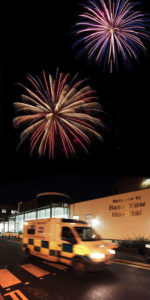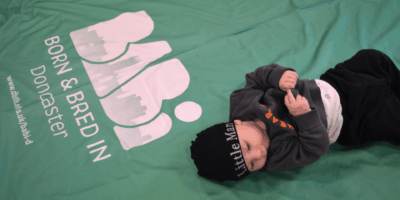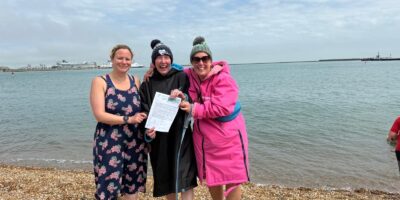 Traditionally a busy night for emergency services across the country, clinicians are asking local residents to stay safe and avoid any dangerous situations. Each year, the Trust cares for patients suffering sparkler burns and other minor injuries, many of which are entirely avoidable.
Traditionally a busy night for emergency services across the country, clinicians are asking local residents to stay safe and avoid any dangerous situations. Each year, the Trust cares for patients suffering sparkler burns and other minor injuries, many of which are entirely avoidable.
David Purdue, Director of Nursing, Midwifery and Allied Health Professionals at DBTH, said: “As a Trust, we are urging local people in Doncaster and Worksop to stay safe when out and about celebrating Bonfire Night this weekend and next. It only takes a second of inattention to suffer a particularly nasty burn, so please do not put yourself in a position where you are heading directly to the Emergency Department, rather than celebrating your night with a toffee apple and a colourful display of fireworks.”
The Trust is also reminding people how to deal with burns should it be needed:
- Stop the burning process by removing the person from the area, dousing flames with water or smothering the flames with a blanket. Never put yourself at risk of getting burnt too.
- Remove any clothing or jewellery on the person that is near to the burnt area of skin. But don’t try to remove anything that is stuck to the burnt skin as this could cause further damage.
- Cool the burn with cool or lukewarm water for 10-30 minutes, ideally within 20 minutes of the injury occurring. Never use ice, iced water or any creams or greasy substances.
- Keep the injured person warm by using blankets or layers of clothing, but don’t put them on the burnt area. Keeping the person warm will prevent hypothermia, where a person’s body drops below 35ºC which is possible if you are cooling a large burnt area, particularly in young children and elderly people.
- Cover the burn in cling film by putting a layer over the burn rather than wrapping it around a limb. A clean clear plastic bag can be used for burns on your hand.
- Treat the pain from the burn with paracetamol or ibuprofen. Once you have completed these steps, you must decide whether further medication and treatment is necessary.
For minor burns you, residents are advised to visit the Minor Injuries Unit at Montagu Hospital, which is open 9am to 9pm. If the injury is serious, you should attend A&E for:
- Large or deep burns: any burns bigger than the affected person’s hand
- Full thickness burns of all sizes: these burns cause white or charred skin
- Partial thickness burns on the face hands, arms, feet, legs or genitals: these are burns that cause blisters
- Whether your burn is mild, minor or serious, you should seek medical advice if:
- The wound becomes painful or smelly.
- You develop a temperature of 38°C or higher.
- The dressing becomes soaked with fluid leaking from the wound.
- The wound has not healed after two weeks.
David continues: “Please remember to only use the Emergency Department when it’s just that – an emergency. If your illness or injury is not life-threatening, there are plenty of alternative services that you can access, ensuring you get the right treatment, at the right time and in the right place.”



